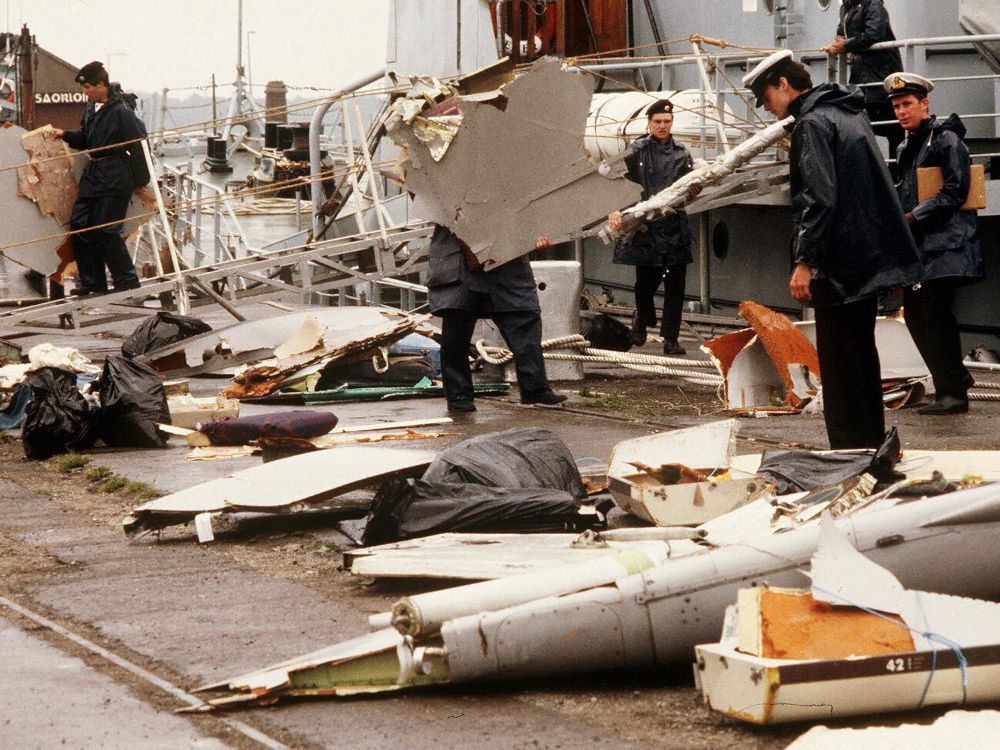
Canada Is Forgetting Its Deadliest Terror Attack: Air India Flight 182
Today, I want to talk about something that should deeply matter to every Canadian—the tragic story of Air India Flight 182, and the way we, as a nation, are slowly letting its memory fade into silence.
On June 23, 1985, Air India Flight 182 was flying from Montreal to London, on its way to Delhi and Mumbai, when it exploded mid-air off the coast of Ireland. Every single one of the 329 people aboard lost their lives—268 of them were Canadian citizens. To this day, it remains the deadliest terrorist attack in Canadian history. Yet, how many of us truly remember it? Worse still, how many were ever taught about it?
June 23 is marked as the National Day of Remembrance for Victims of Terrorism, a solemn day established in 2005. But ask around, and you’ll find that most Canadians don’t even know why that date was chosen. The story of Flight 182 has been treated more like a distant, foreign tragedy—something that happened "over there," affecting "other people." But the truth is, this was a homegrown act of terrorism. The plot was planned and executed by extremists based in Canada. And yet, the public response over the decades has been shockingly indifferent.
In the years following the bombing, the Canadian government failed to even confirm it was caused by a bomb. It took 15 years for charges to be laid, five more years for a trial that led to little justice, and another five before a formal apology came. A federal inquiry spoke of a “cascading series of errors,” but even that didn’t fully confront the systemic failures, including the racism that made it easier for authorities and the public to overlook the suffering of the victims’ families.
Also Read:- Dermot Murnaghan’s Brave Cancer Battle Sparks National Awareness
- Qatar Airways Reshapes Perth Route with Qsuite Boeing 777, Phases Out A380
For people like Dr. Nisha Thampi, this is not just history—it’s personal. Her mother was on that flight. She grew up in a blended family, bonded by shared loss: her stepmother also lost her husband and daughter in the same bombing. Imagine growing up surrounded by silence, knowing your loved ones were taken by terror, yet the country they called home barely acknowledged their absence.
The problem goes deeper than memory—it’s about accountability. Flight 182 was not an unavoidable tragedy. There were warnings. There were missed opportunities to act. The evidence suggests the attack could have been prevented, yet no one has truly paid the price for that failure.
A recent poll by the Angus Reid Institute found that 90% of Canadians have little or no knowledge of the attack. Among those aged 18 to 34, most had never even heard of it. That’s not just a lapse in education—it’s a national failure of remembrance.
How can we learn from our past if we don’t even acknowledge it? How can we ensure justice, safety, and compassion if our historical record skips over the darkest chapters that should have taught us the most?
The wreckage of Flight 182, the few pieces that were recovered, remain hidden from public view. Families have called for it to be displayed—so Canadians can see, feel, and understand the horror that was inflicted. Because until we face the full weight of this tragedy, we can’t begin to heal from it.
Forty years have passed. We now stand at a crossroads: will we continue to forget, allowing ignorance and indifference to grow? Or will we finally commit to honoring the lives lost, and the families still grieving, by confronting the uncomfortable truths that this bombing reveals?
The choice is ours. Let it not be silence again.
Read More:

0 Comments